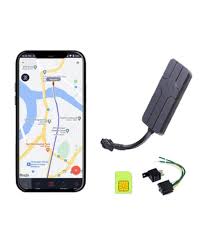GPS Trackers: The Modern Solution for Security and Peace of Mind


A car tracker typically refers to a GPS tracking device that is installed in your vehicle to monitor its location, movements, and sometimes even vehicle diagnostics. Car trackers are popular for purposes like vehicle security, theft recovery, fleet management, and even monitoring driver behavior. They can be especially helpful if you're worried about your car being stolen or if you want to track your vehicle for any number of reasons.
Here’s a breakdown of the different types of car trackers available, their uses, and some popular options:
These trackers provide continuous, live updates on the vehicle’s location. You can monitor the vehicle in real time via an app or a web portal. They’re ideal for vehicle security, fleet management, and personal use.
These are smaller, portable devices that can be hidden inside the car. They're typically used for one-time tracking or as a backup to other tracking systems.
These devices plug directly into your car's OBD-II (On-Board Diagnostics) port, which is found in most cars built after 1996. These devices often come with additional features like driver behavior monitoring, vehicle diagnostics, and speed alerts.
These trackers are installed directly into your vehicle’s electrical system. They’re more permanent than plug-in devices and are harder to tamper with.
Comments
Post a Comment